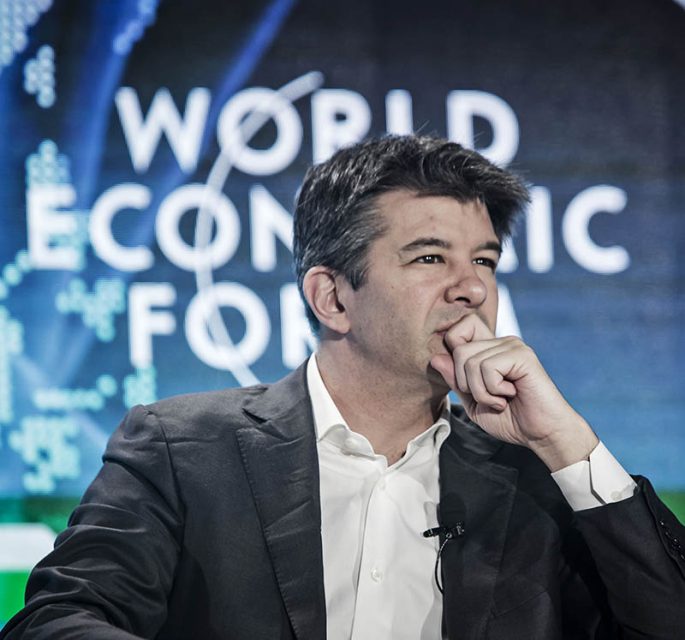by SYDNEY P. FREEDBERG, NICOLE SADEK, BRENDA MEDINA, AGUSTIN ARMENDARIZ, & KARRIE KEHOE

As it grew from scrappy Silicon Valley startup to a world-conquering multi-billion dollar operation, Uber promoted itself as a leader of the digital revolution.
But the tech company pushed its agenda the old-fashioned way. Uber’s scandals and missteps in the United States, from its spying on government officials to its leaks of executive misconduct, have been the subject of books, TV series and newspaper investigations.
Now, a new leak of records reveal the inside story of how the ride-hailing giant’s executives muscled into new markets, then managed the fallout, spending gobs of cash on a global influence machine deployed to win favors from politicians, regulators and other leaders, who were often eager to lend a hand.
The records, the Uber Files, were obtained by The Guardian newspaper and shared with ICIJ and 42 other media partners. The cache includes emails, text messages, company presentations and other documents from 2013 to 2017, when Uber was barging into cities in defiance of local laws and regulations, dodging taxes and seeking to grind into submission the taxi industry, most prominently, but also labor activists.
“Right now you are seen as aggressive,” the prime minister of the Netherlands, Mark Rutte, told Uber’s founder, Travis Kalanick, in 2016, according to meeting notes. “Change the way people look at the company” by stressing the positives, Rutte advised. “This will make you seem cuddly.”
That aggressiveness — plunging into markets without government approvals — made Uber’s drivers the target of traditional cabbies’ rage. Taxi drivers saw their business threatened by competitors who didn’t have to play by the same rules. In Europe, Asia and South America, cabbies staged protests, harassed Uber customers, beat Uber drivers and set fire to their cars.
Some Uber executives sought to spin violence to their advantage. They discussed leaking details of a near-fatal stabbing and other brutal attacks to the media hoping to draw negative attention to the taxi industry, the communications show.
Uber executives also sought to deflect inquiries about the company’s aggressive tax avoidance strategies by volunteering to help host countries collect income taxes owed by drivers, documents show.
The records include details of private exchanges and get-togethers: a U.S. ambassador chatting with an Uber investor in a Finnish sauna; a Russian oligarch entertaining company executives with a Cossack band; a company lawyer circulating a “dawn raid manual” that tells employees what to do if law enforcement officers swoop down on Uber offices to seize potential evidence of illegal conduct.
And they shed light on internal discussions among executives grappling with the fallout of Uber’s chaotic global strategy.
Mark MacGann, Uber’s chief lobbyist in Europe at the time, described Uber’s approach to entering new markets as a “sh*itstorm,” according to the documents.
“We’re just fucking illegal,” Nairi Hourdajian, then head of Uber’s global communications, wrote to a colleague amid government efforts to shut down the ride-hailing service in Thailand and India.
The Uber Files also show that the company’s use of stealth technology to thwart government investigations was far more expansive than previously reported. Company executives activated a so-called kill switch to cut access to company servers and prevent authorities from seizing evidence during raids on Uber offices in at least six countries, according to the leaked documents.
Kalanick personally ordered use of the switch as police were descending on its Amsterdam headquarters, records show. “Please hit the kill switch ASAP,” Kalanick ordered. “Access must be shut down in AMS [Amsterdam].”
David Plouffe, who managed President Barack Obama’s successful 2008 presidential campaign, and Pierre-Dimitri Gore-Coty, now in charge of Uber Eats, were told that the company had deployed the kill switch to block investigators, text exchanges show.
To spread its message, Uber and an advisory firm compiled lists of more than 1,850 “stakeholders” — sitting and former public officials, think tanks and citizens groups — it hoped to influence in 29 countries and the European Union, the documents show.
Plouffe was one of many former Obama aides recruited by Uber to join a battalion of former public officials to spread its influence. They appealed to public officials to drop probes, change policies on workers’ rights, draft new taxi laws and relax background checks on drivers.
Records show that Uber executives met with France’s Macron, then-Israeli Prime Minister Benjamin Netanyahu, then-Irish Prime Minister Enda Kenny and then-Estonia President Toomas Hendrik Ilves, among other world leaders.
In 2016, then-U.S. Vice President Joe Biden sought a meeting with Kalanick at the World Economic Forum in Davos, Switzerland.
Kalanick, messages show, grew impatient when Biden ran late. “I’ve had my people let him know that every minute late he is, is one less minute he will have with me,” the then-39-year-old entrepreneur texted a colleague.
Once Biden arrived at the five-star hotel suite they’d agreed to meet at, Kalanick made his well-practiced pitch: The ride-hailing company, he said, was transforming cities and the way people work, all for the better.
Biden was so impressed, records show, that he tweaked his keynote speech, delivered later that day, to tout the company’s global impact.
In all, the new records reveal more than 100 meetings between Uber executives and public officials from 2014 to 2016, including 12 with representatives of the European Commission that haven’t been publicly disclosed.
